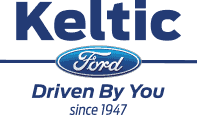Leasing vs. Buying a Vehicle
The Differences Between Leasing and Buying a Vehicle.
What does it mean to lease a car anyway?
Leasing a Vehicle
Leasing a vehicle essentially means that you’re renting a brand new car from the dealership for a certain agreed upon period of time- most commonly 36 or 48 months. Your payments are going towards the time you’re using the vehicle, and are generally lower than the payments to purchase a new vehicle. At the end of the contract, if you’d like to upgrade your vehicle, you can return the car and upgrade to a new lease with a new vehicle. If you’d like to keep your vehicle, you have the option to buy the vehicle at a predetermined rate (decided at the beginning of the lease contract), which will be impacted by the payments already made during your lease term. Another option is to refinance the vehicle for the residual amount owing on the vehicle, lowering the payment even further.
For many people, the most appealing part of leasing a vehicle is that you get a new car every 3-4 years. Because of the lower monthly payments, you may also get more features than you would normally purchase. If you are using the vehicle for business, the monthly payments may be eligible for tax deductions.
Something important to consider is how much you plan to drive. Most leases give 24,000 kilometres per year of the lease or 72,000 on a 3-year lease. Consequently, if you drive over that limit you’ll pay more.
Buying a Vehicle
Buying a vehicle is tempting if you’re interested in building equity, or you’re hoping to gift the vehicle, sell or trade-in when it’s time for a new vehicle. When you purchase a vehicle you’ll pay for the cost of the vehicle over its entire lifetime since you won’t be returning it. Something to consider is that when you own a vehicle, you’ll be paying for maintenance and repair costs as the car ages outside of warranty. However, when you’re done paying off your loan or financing (or if you pay cash up front) the vehicle is yours and you can resell, pass it down to a family member, or trade it in when you want a new vehicle.
Most people consider the biggest positive about buying a car to be that you own your vehicle outright, which means equity for you. Once you own a vehicle, you can trade in or re-sell your vehicle when you’re ready for an upgrade. In addition, if you like to put your vehicles to the test or live in an environment that causes extra wear (dirt roads!), then buying a vehicle means you don’t have to worry about dents and dings impacting your lease terms.
The bottom line is that whether you choose to lease or buy your new vehicle, we’ll work with you to ensure that you get the financing that is right for you.
Ask the ‘Pros’
There are benefits to both options. Compare leasing vs. buying and see which is right for you.
LEASING PROS
-New car every 3-4 years.
-Likely won’t have to deal with repairs outside of warranty.
-Lower cost of ownership
-Don’t worry about having to resell your vehicle
BEST IF…
-You don’t want to commit to just one vehicle model!
-You’re looking for something hassle free
-You’d like the newest vehicles & features more frequently
-You don’t do a whole lot of driving
-You want lower monthly payments
BUYING PROS
-Own your vehicle outright
-Builds equity
-No limit on how many KMs you can drive
-Can cost less to insure
BEST IF…
-You want to keep your vehicle for more than 3 years
-You’re looking to build equity
-You’re an off-roading fan, or know you can be tough on vehicles.
-You drive more than 24,000 KM/ year
-You plan to move out of province in the foreseeable future
Looking for car insurance? Try AA Munro or Carmie MacInnis.
